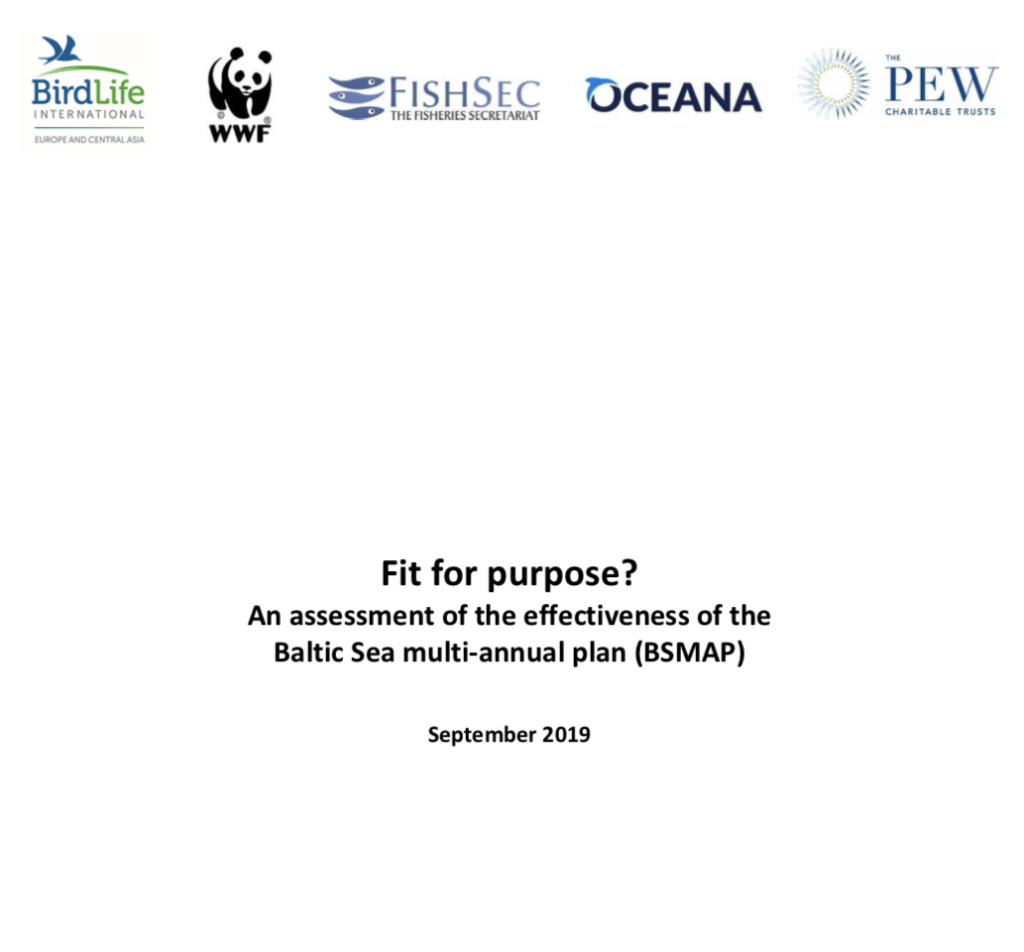An assessment of the effectiveness of the Baltic Sea MAP

Fit for purpose? An assessment of the effectiveness of the BSMAP is a joint analysis of the Baltic Sea Multiannual Management Plan (BSMAP) by Pew Charitable Trusts, Birdlife International, WWF, FishSec and Oceana. We conclude that the BSMAP has failed to improve fisheries management in the Baltic Sea. The state of the Baltic ecosystem and its fish stocks speaks for itself.
In place since July 2016, the BSMAP, was the first management plan adopted by the EU after the reform of the Common Fisheries Policy in 2013. Having been in place for three years it is being evaluated by the European Commission and has had a stakeholder consultation.
We conclude that the BSMAP has failed to improve fisheries management in the Baltic Sea and recommend that MAPs and the CFP definine a maximum level of fishing mortality in future. The state of the Baltic ecosystem, its fish stocks and the decision-making process speaks for itself.
In summary:
- MAPs were introduced in the CFP to address three specific challenges: the need for longer-term (multiannual) management geared towards achieving the CFP’s objectives; the need to take into account regional and ecosystem specificities; and the desire to bring decision-making closer to the regions in question.
- The Baltic MAP was instrumentalised to serve other purposes, key among which was the facilitation of the implementation of the LO and providing decision-makers with flexibility regarding fisheries management – not only in the Baltic region, but first and foremost in other European seas.
- The flawed design of the Baltic MAP led to management decisions and fishing practices that have failed to fulfill the intent of the CFP and achieve the MSFD’s Good Environmental Status target. The intended regionalisation elements have failed to ensure the MAP delivers on the specific needs of the Baltic in a timely manner, and lastly the MAP has failed to help deliver TACs in line with MSY and scientific advice.
Published on September 24, 2019